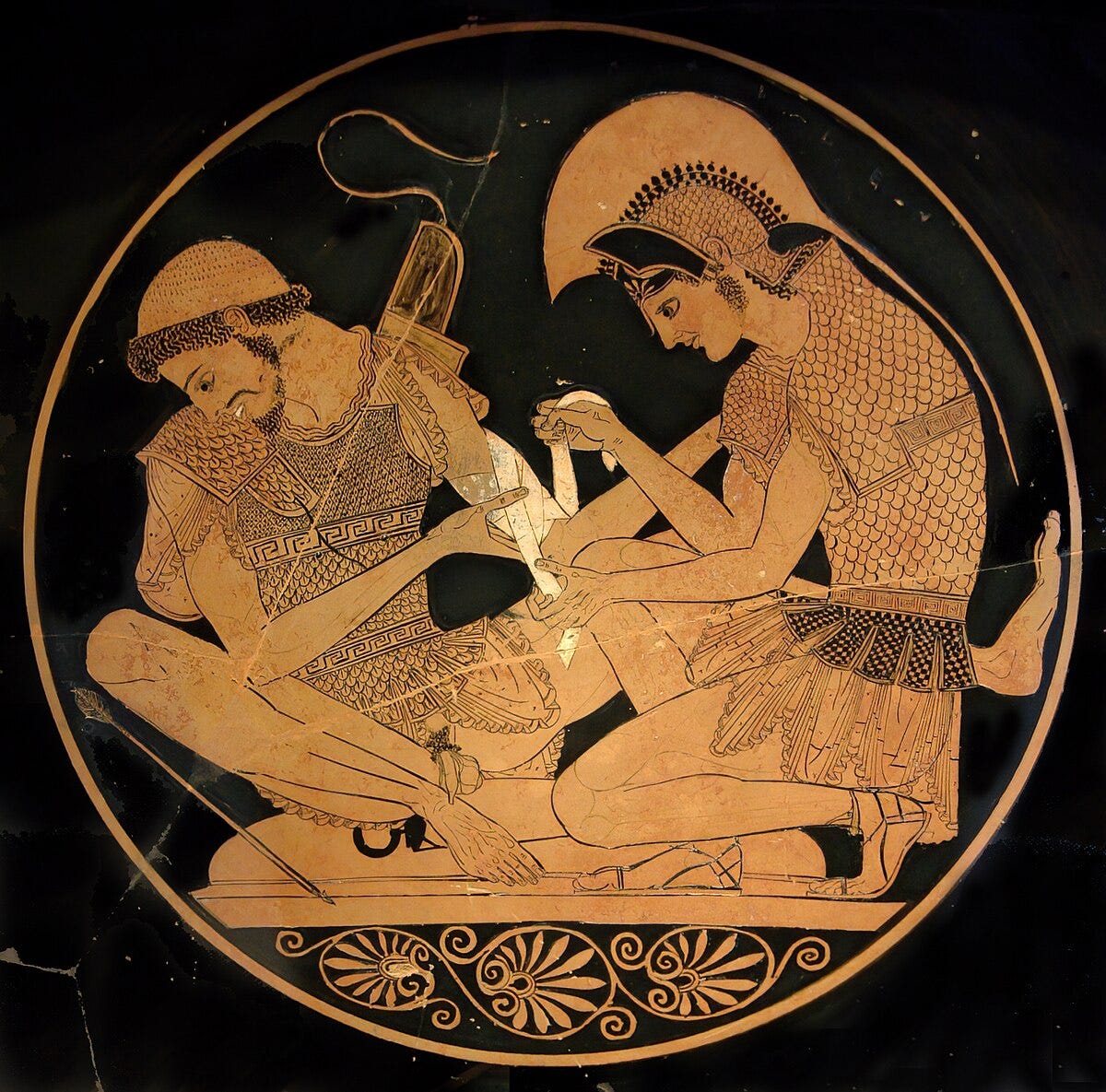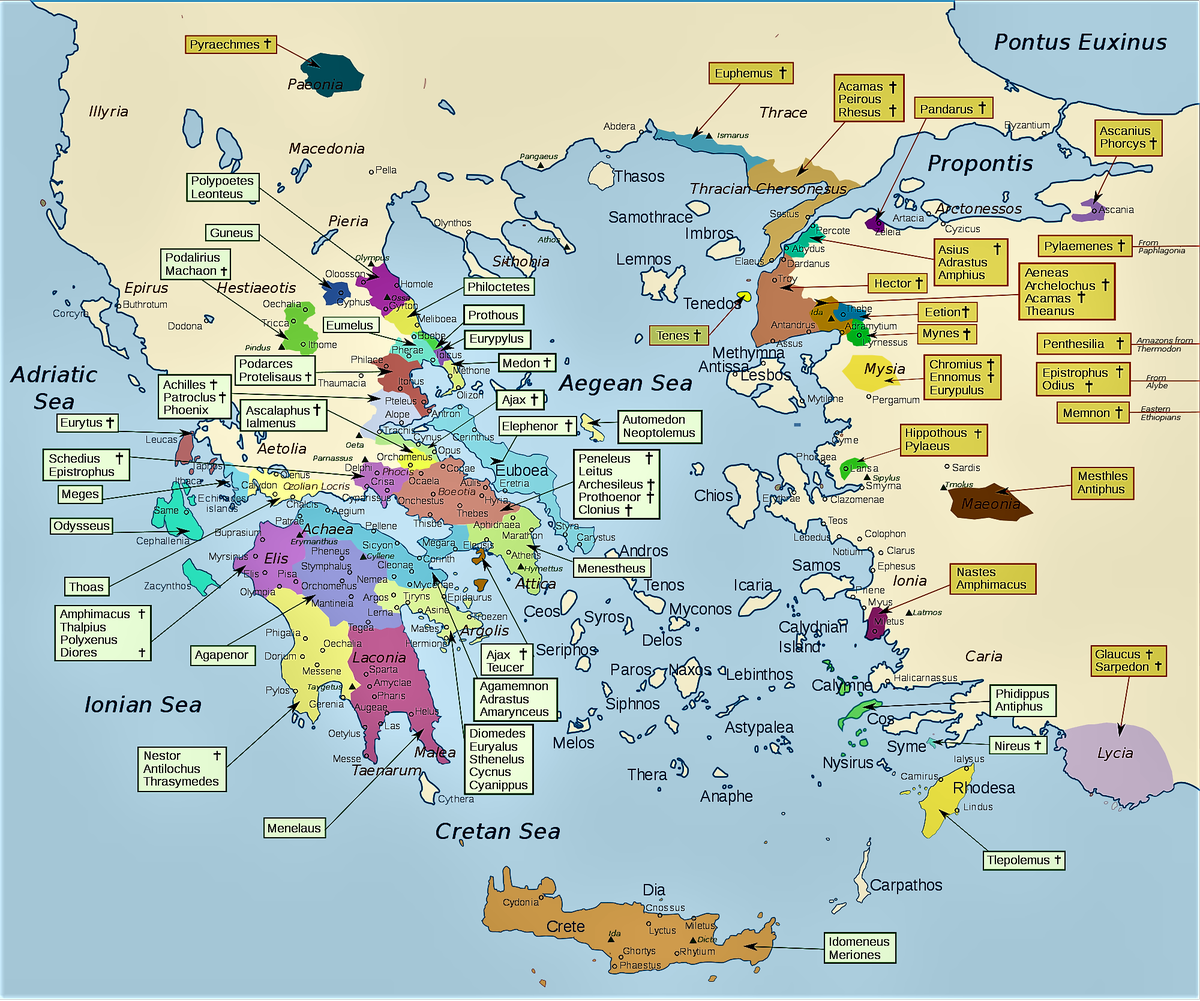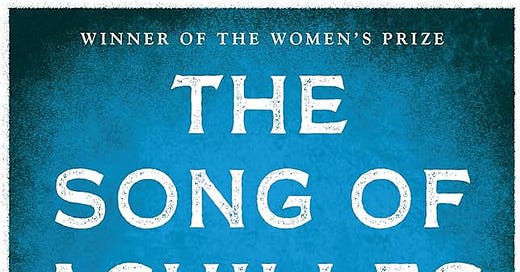The Song of Achilles by Madeline Miller
I expected something akin to Troilus and Cressida, but was pleasantly surprised to find it was more like the feminist play, Trojan Women.
The story is as old and well known: Achilles, greatest warrior of the Greeks, bathed in the Styx and invincible but for his famous heel, fights on behalf of Greece against Troy in the Trojan War, which was started because Paris (encouraged by Aphrodite) stole Helen, wife of Menelaus. Lesser known by the masses is his great love for Patroclus, and how Patroclus donned Achilles’ armor and died by the hand of Hector.
Patroclus is our hero for this story.
The story would perhaps be more aptly named ‘Lament of Patroclus,’ for we follow Patroclus in this masterful retelling through his woeful youth and his later years, where he fawns over the perfect Achilles at every opportunity. It is heartbreaking, as Patroclus is repeatedly described as plain and not incredibly special, and yet the reader can tell that this boy is resilient, kind, and exceptional in his willingness to let others shine- namely, Achilles.

Patroclus’s great love for Achilles, though, runs cleanly through the story, which is where the title makes sense. The whole story is a song of Patroclus’s love for Achilles and the lengths he will do to preserve Achilles’ legacy and honor. Without giving too much away, the final pages after Achilles and Patroclus both died were enough to move me to tears. (And that’s not a spoiler— this Greek story has been out for ages).
The retelling here is epic and timeless though because it capitalizes on two key themes: trying to change fate, and finding moments of humanity in darkness. The ending is inevitable; we all know that Achilles dies- but seeing Patroclus try his hardest to stave that off is incredible. The second one is unique to this retelling; Miller emphasizes Patroclus’s kindness to others, through his continual choices to do not what is easy, but what is right. Early on in life, he does not lie when he pushes and kills a boy accidentally; he takes the blame. He asks Achilles during the war to claim girls who were captured as slaves, so that they can be kept well and cared for, and not raped or forced to do hard labor. He volunteers in the medical tent and treats all matter of ills, even though he was never required to. All of this grows the readers’ affection for Patroclus, and makes him exemplary, instead of ordinary- as he perceives himself.

The interaction of divine and mortal in this story is handled so well: Thetis, Achilles’ mother (and a sea nymph) is powerful and scary, yet she has her ‘human’ moments. The other gods are far removed- important, and powerful, but whimsical and dangerous because of it.
What makes this story even more beautiful is that while it is a love story, it is more about Patroclus’ own coming of age and maturation. Yes, he loves Achilles- but it is his own development from boy to man around that love that informs his character, his actions, and his demise.
I would recommend this book to anyone who likes Greek myths, queer romance, elaborate storytelling on classic themes, and a good cry.
Rating: 5/5 stars.





